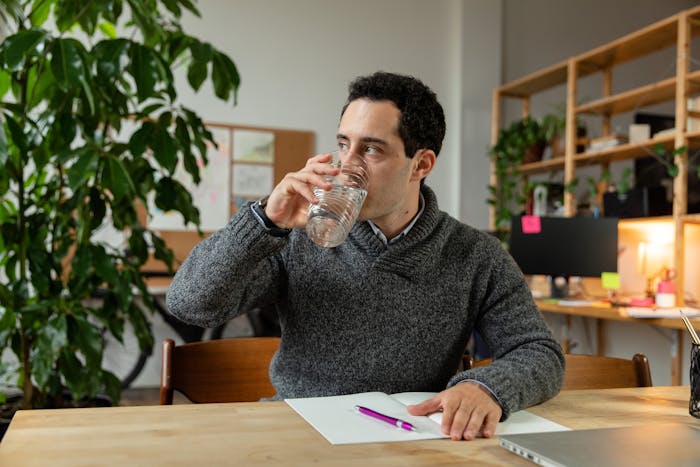Brent Cross in the London Borough of Barnet, recorded 26 individuals as having successfully completed a period of rehabilitation for opiate use in 2020. This figure was 78 people for non-opiate drug users. [1]
In 2020/21, 2,551 people reliant on alcohol were not in treatment for alcohol addiction however, in 2020, 56 individuals successfully completed treatment for alcohol addiction. [2]
Rehab in Brent Cross tackles this issue, and helps individuals to get the help they need to successfully recover.

For many people, an addiction to alcohol might look like a need to drink alcohol regularly, rather than as a treat or in moderation.
People who are addicted to alcohol may find that it takes more alcohol than it used to, to feel the same effects of relaxation.
For others, tensions within relationships like spouses, parents, partners or close friends may be a sign that alcohol use is beginning to affect others and not just the person addicted.
If you feel like you need to drink alcohol to avoid the physical symptoms of not drinking, in order to function at work, or to cope with everyday stress or recently stressful situations, it may be possible that you have an addiction to alcohol.
Being addicted to alcohol is a condition that can affect anyone. Often people do not realise that they are addicted until their drinking behaviours start to affect other people.
Feelings of guilt, being overwhelmed and feeling victimised by loved ones who question your drinking are common.
It can be a stressful time when admitting that your drinking is causing you and others trouble, but there always exists the possibility for treatment.
This can be through a rehabilitation centre, privately, or through self-help, local addiction services or the NHS.
With the right treatment, and time to adjust and adapt to life without alcohol, many people are able to treat and overcome their addiction to alcohol, as well as gain the skills and knowledge to cope with life when things become difficult.
At Rehab 4 Addiction, we offer free advice from a team of non-judgemental professionals, many of whom are in recovery and understand how hard it can be to change your relationship with addiction.
For more information about rehab in Brent Cross, simply reach out to our 24/7, confidential hotline on 0800 140 4690.

Rehabilitation is the term used when describing the process by which people who are addicted to drugs, alcohol or any other substance are treated for, and helped in overcoming, their addiction.
There are many different kinds of rehab in Brent Cross, but most commonly residential in-patient treatment or outpatient rehabilitations with self-help or one to one therapy are used.
Inpatient treatment usually means that you go and stay in a private treatment centre and undergo treatment with a team of qualified practitioners who can help you through a process of detox, if necessary.
Afterwards, you will undergo a course of intensive therapy with a trained counsellor or therapist where you will discuss what you believe the causes of the addiction are.
Next, you can establish if there are any underlying mental health conditions that are affecting you that might make addiction more likely.
You’ll also learn some methods and techniques to cope with the triggers that make you feel like you have to drink or use drugs.
For outpatient treatment, treatment is similar, in that it primarily relies on undergoing therapy.
Outpatient treatment will take place while you remain at home and visit or receive visits from a counsellor or therapist.
Alternatively, you might choose to go to a support group like AA (Alcoholics Anonymous) or NA (Narcotics Anonymous) where you can build a support network with others who have struggled with the same problem.
Rehabilitation is a personal and often challenging journey, but with all of the options in mind you can make the choice of which kind of rehabilitation you’d prefer and find the best fit for you.

When it comes to addiction, it is often not just the person addicted that is affected.
Loved ones and family members around the individual can often feel like they want to help and stop the cycle of substance use.
Many families and friends try and intervene with their loved ones – interventions might involve encouraging a loved one to seek help, encourage behaviour that involves limiting or stopping use of the substance, or helping find resources for the loved one.
What is often more effective than an intervention alone, is talking with a loved one using the elements of the CRAFT approach.
This involves supporting the person struggling rather than criticising them, but also allowing them to feel the negative effects of their use of substances.
Some people might find that they would prefer the help of a professional interventionist, who has experience helping loved ones to seek treatment.
They often have a broad set of knowledge about addiction, rehabilitation, and the psychology of addiction and may be able to help a loved one begin their journey towards rehabilitation.
At Rehab 4 Addiction, we offer free advice from a team of non-judgemental professionals, many of whom are in recovery and understand how hard it can be to change your relationship with addiction.
For more information about rehab in Brent Cross, simply reach out to our 24/7, confidential hotline on 0800 140 4690.

Not all rehabilitation services offer the same treatment, facilities and amenities.
For this reason, rehab in Brent Cross can vary significantly in cost depending on what is desired most by a patient.
For residential inpatient treatment costs can be as high as £90,000 for a luxury treatment centre, however much more common are prices around £10-15,000 for a month’s stay.
Some centres offer treatment for as little as around £1000 per week – so roughly £4000 for a month’s stay.
Rehabilitation is available under the NHS but is more likely to be outpatient only, with counselling, self-help, group therapy and medication more often offered to people struggling with addiction.
Under the NHS rehabilitation is free, but services can be limited or overprescribed.
At Rehab 4 Addiction, we offer free advice from a team of non-judgemental professionals, many of whom are in recovery and understand how hard it can be to change your relationship with addiction.
For more information about rehab in Brent Cross, simply reach out to our 24/7, confidential hotline on 0800 140 4690.

As mentioned, the NHS does offer rehab in Brent Cross for alcohol and drug addictions but it is rare that funding will be allocated for private treatment.
Instead, treatment under the NHS is often outpatient only.
Outpatient only treatment means that you will remain at home and do not have to stay in a treatment facility during the duration of treatment.
Treatment often comes in the form of counselling, therapy such as CBT or referrals to group support sessions or other forms of self-help.
Depending on the local NHS trust, support can differ substantially and it is always worth discussing concerns and options with your GP who can best advise you on available services.

The duration of stay in a private rehabilitation centre will depend on the individual, but the most common length of stay is around 28 days.
For those with alcohol addiction issues, rehab in Brent Cross stays can be as short as 7 days which allows for a detox period.
28 days is the recommended minimum duration, however, for those wanting to recover from alcohol or drug addiction.
This is because firstly, certain drugs and alcohol are chemically addictive and will cause a withdrawal when you stop taking them, if you’ve been taking them for a while or in large quantities.
For this reason, the first part of treatment will involve a detoxification period during which you will have supervision from a medical professional who will administer medication to make the process safer and reduce the effects of withdrawal symptoms.
This means that once the process is complete, you can begin therapy with a counsellor or therapist and help to evaluate both the cause of addiction and methods to overcome it in the long term and recover from the addiction itself.
28 days provides enough time to recover from detox and also learn how to live without alcohol or drugs in an environment where you do not have access to them.

Under the NHS you:
Under Private treatment you:
At Rehab 4 Addiction, we offer free advice from a team of non-judgemental professionals, many of whom are in recovery and understand how hard it can be to change your relationship with addiction.
For more information about rehab in Brent Cross, simply reach out to our 24/7, confidential hotline on 0800 140 4690.

During inpatient treatment, you will stay in a residential facility throughout the process of rehabilitation.
You will stay at home if you undergo outpatient treatments.
The major differences between in- and outpatient treatment are as follows:
Inpatient treatment:
Outpatient treatment:

Alcohol is not only addictive to a person psychologically but eventually addiction can mean that they body becomes chemically dependent on alcohol and struggle when alcohol use is withdrawn or reduced.
When alcohol is stopped there can be a number of symptoms:
These symptoms are not only distressing to the person experiencing them, but in severe cases they can be dangerous and even fatal.
This is why you should always speak to a medical professional before undergoing a detox or stopping use of alcohol after an extended period of time.
To treat withdrawal symptoms, you might be given a medicine called Librium. Librium is commonly prescribed for people who are withdrawing from alcohol.
As a sedative medication, it has a calming effect on the body and the mind because it reduces the action of the central nervous system.
This means bodily processes slowly down and the body can’t react as strongly as it would without medication.
This reduces the likelihood of dangerous side effects like seizures.
Generally, this drug is administered over around 10 days while in treatment at a rehabilitation centre, after which there will be around 3 weeks of intensive therapy.
During therapy for alcohol addiction, triggers for alcohol use will be discussed.
You will be taught coping strategies for managing anxiety, stress and distress and an evaluation of your mental health will be performed to see if there are any underlying causes for your substance use.
After the period in rehabilitation is complete, you will not have alcohol in your system and will have a fresh start at entering life with the tools you need to help live without alcohol.

Cocaine isn’t chemically addictive like alcohol is, and you won’t experience the same kinds of dangerous withdrawal symptoms when you stop taking it.
This means that you will start with therapy almost straight away when you complete a stay at a rehabilitation centre.
Therapy is the most important aspect of treatment for addiction as it is the only way to truly discuss your relationship with cocaine, how it affects and has affected you and the reasons you both use cocaine and want to stop.
Through a conversation with a therapist, you can find out what triggers might cause you to use cocaine, what environments or situations would be safer to avoid or manage differently and whether you have any underlying mental health conditions that have led you to use cocaine.
Usually, treatment lasts for 28 days in a rehabilitation facility where you have no access to cocaine or those that might provide it to you.
At Rehab 4 Addiction, we offer free advice from a team of non-judgemental professionals, many of whom are in recovery and understand how hard it can be to change your relationship with addiction.
For more information about rehab in Brent Cross, simply reach out to our 24/7, confidential hotline on 0800 140 4690.

As a member of the opioid family heroin is related to morphine, opium and codeine – heroin itself is also known as diamorphine.
Opioids are used clinically for their pain-killing properties, but are known to become chemically addictive, not just psychologically addictive.
Most people that take an opioid over a period of several weeks or months will become dependent on it physically, because the body becomes reliant on its presence.
This is true for heroin too – after using heroin for period of time and stopping, as you would while in treatment at rehab, your body will react to the lack of heroin with the following symptoms:
All of these symptoms can make withdrawal uncomfortable and sometimes dangerous.
Withdrawal is made easier with the use of medications like Buprenorphine and Naloxone.
Buprenorphine acts similarly to heroin but is less strong and can help to gradually reduce the severity of symptoms during withdrawal.
Naloxone is less commonly used in rehabilitation settings but is administered to counteract a heroin overdose.
Alternatively, Methadone, a drug similar to heroin and stronger than Buprenorphine is sometimes administered to a person withdrawing from heroin use.
Methadone is used the same way buprenorphine is, and allows you to gradually reduce the amount each day until all medication is stopped and withdrawal symptoms have abated.
Afterwards, intensive therapy will be undertaken to treat underlying issues and help to reduce the likelihood of withdrawal in future.

Cannabis is not chemically addictive but, due to its relaxing properties, has the potential for people to become psychologically dependent on it.
Some people may find that they struggle to relax without cannabis as well as having trouble adapting to stress or socialising without it.
When cannabis starts to interfere with relationships, work or other aspects of everyday life it may be appropriate to consider undergoing some form of rehabilitation.
During rehabilitation for cannabis use there is no detox period as stopping cannabis use cold turkey cannot cause dangerous side effects the way that heroin or alcohol can.
For this reason, therapy is the first treatment and will be continued for the duration of the stay at the rehabilitation clinic.
aims to understand the core of the addiction and what problems or other issues cannabis is being taken to resolve.
Therapy also provides the opportunity and environment to understand social, mental health-related or personal triggers that may have led to cannabis addiction.
The aim of therapy is to provide a better understanding of addiction, addictive behaviours and how aspects of these are related to your own life, relationships and wellbeing.
At Rehab 4 Addiction, we offer free advice from a team of non-judgemental professionals, many of whom are in recovery and understand how hard it can be to change your relationship with addiction.
For more information about rehab in Brent Cross, simply reach out to our 24/7, confidential hotline on 0800 140 4690.
In Brent Cross there are a number of therapies that are offered during rehabilitation.
Two similar therapies are CBT and DBT – Cognitive and Dialectal behavioural therapy respectively.
These each aim to help you rewire your though patterns with the aim of making them more compatible with a drug/alcohol-free lifestyle.
Brief interventions, as mentioned earlier are typically done before rehabilitation by family, friends or a professional interventionist.
They involve a short chat to discuss behaviours relating to addiction, as well as check in with advice, support or encouragement.
Motivational interviews are completed by therapists with you, and aim to pin down and make clearer to you the reasons why you want to stop using drugs or alcohol.
Holistic therapies are a blanket term for alternative therapies like art, adventure or music therapy.
Some people find that these therapies are more effective for themselves personally and some facilities offer a range of these therapies to help see which you benefit from most during the duration of your stay.
Therapy as a group, part of a family or as an individual is typical of almost all rehabilitation centres and simply involves discussion with a trained therapist about the causes for addiction, coping strategies and trigger identification.
Each kind of therapy can benefit you depending on your comfort level and personal needs.
Co-dependency treatment refers to treatment for people who find they are reliant on others a lot in their everyday life.
By helping you to become more independent and no longer need to rely on others you may find that addiction is easier to overcome.
TSF or Twelve step facilitation therapy describes a treatment programme that is delivered over 12 sessions, usually over 12 weeks and that aims to teach a new stage every week to help you gradually apply the techniques to your life.
This treatment can give you a better understanding of your addiction, techniques to help in overcoming addiction, and remain sober after treatment.
 Dual diagnosis refers to the diagnosis of someone in treatment for addiction (with a substance use disorder) with a secondary or other mental health condition.
Dual diagnosis refers to the diagnosis of someone in treatment for addiction (with a substance use disorder) with a secondary or other mental health condition.
Because alcohol and drug use are often comorbid with a number of mental health conditions, dual diagnosis means that therapists and health care professionals as well as you, can better understand the triggers and causes of the substance use disorder.
By diagnosing underlying mental health conditions like anxiety, depression, bipolar disorder, schizophrenia, OCD, ADHD etc. they can be properly treated with medication or therapy.
Once these conditions are treated, they may reduce the need or desire to drink and take drugs.
Often drug and alcohol use is seen by users of either as a kind of ‘self-medicating’ behaviour – by treating underlying mental health conditions properly individuals may find that self-medicating is no longer necessary or helpful, thus making recovery easier.
At Rehab 4 Addiction, we offer free advice from a team of non-judgemental professionals, many of whom are in recovery and understand how hard it can be to change your relationship with addiction.
For more information about rehab in Brent Cross, simply reach out to our 24/7, confidential hotline on 0800 140 4690.

The main focus at rehabilitation is on therapy, therapy provides most of the perspective and understanding that can help people stay abstinent from alcohol or drugs upon leaving treatment.
These include:

After a stay in rehab in Brent Cross, or after completing a course of rehabilitation as an outpatient, there are a number of organisations that can help to keep you abstinent from alcohol or drugs.
Two more well-known organisations are: Alcoholics Anonymous and Narcotics Anonymous who offer a range of services to help people struggling with addiction and after completing a period of treatment.
SMART Recovery and Alcoholics Anonymous Family Group meetings are also available to offer further assistance to those still recovering or post-treatment.
Finally, outpatient treatment via the local drug or alcohol team in Brent Cross as well as home detoxing services are available to help keep you on track towards overcoming addiction altogether.
At Rehab 4 Addiction, we offer free advice from a team of non-judgemental professionals, many of whom are in recovery and understand how hard it can be to change your relationship with addiction.
For more information about rehab in Brent Cross, simply reach out to our 24/7, confidential hotline on 0800 140 4690.

 Addiction is often largely misunderstood, with many incorrectly labelling it as a lack of willpower, a moral failing or something that happens after a series of bad choices. When, actually, addiction is much more complex. It can be shaped by a number of things, such as trauma, mental health, the environment you grew up in […] .... Read More
Addiction is often largely misunderstood, with many incorrectly labelling it as a lack of willpower, a moral failing or something that happens after a series of bad choices. When, actually, addiction is much more complex. It can be shaped by a number of things, such as trauma, mental health, the environment you grew up in […] .... Read More
 After completing or trying your best for Dry January, it can be tempting to count the days left until you can give it all up and return to drinking. But there are multiple benefits to maintaining your abstinence into February and longer. During Dry January, your liver begins to repair itself, say if you were […] .... Read More
After completing or trying your best for Dry January, it can be tempting to count the days left until you can give it all up and return to drinking. But there are multiple benefits to maintaining your abstinence into February and longer. During Dry January, your liver begins to repair itself, say if you were […] .... Read More